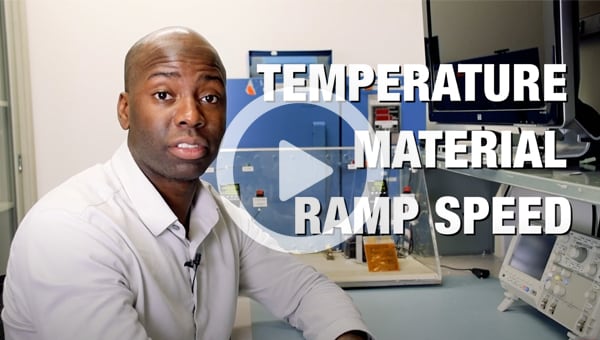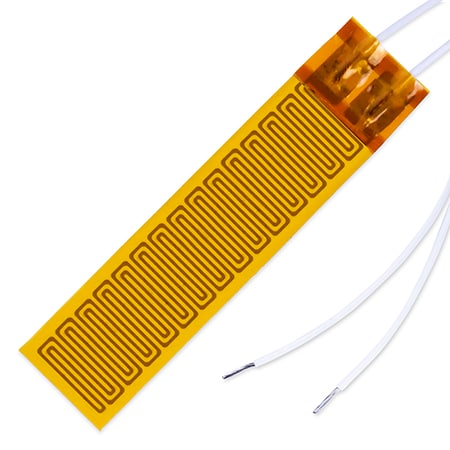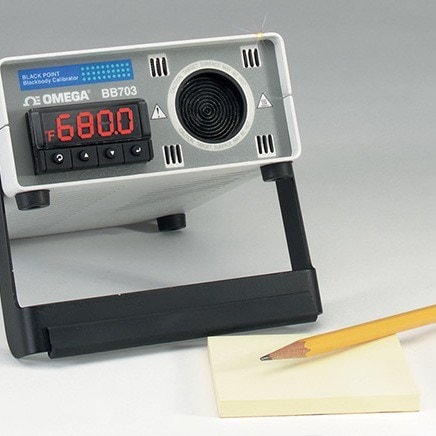Primary factors to consider: There are three main aspects to consider when comparing industrial surface heaters. These include:
- Temperature: How hot do you need your surface to be?
- Material: What type of material is to be heated? How large is it, and how much does it weigh?
- Speed of heat transfer: How fast do you need to reach your temperature set point? Should the material’s temperature increase slowly, or do you need a quick response?
How to calculate required wattage
In order to determine whether a particular heater will perform well in your application, you must compare its wattage with your requirements. You can use the following formula to determine your required wattage.
kW = (WT x Cp x Δ T)/3412 x h
Where:
kW = your kilowatt requirement
WT= the weight of the material to be heated, in lbs.
Cp = the specific heat of the material to be heated, in BTU/lb°F
Δ T = Temperature Rise, in °F
3412 = Conversion Factor, BTU/kWh
h = how long it should take to reach the temperature set point, in hours
Sample calculation
Here’s an example of an application for which you’d need to calculate the required wattage. Consider an aluminum plate that’s being used to heat a solar cell to determine its operating temperature range.
The first step is to find the weight of the aluminum plate. In this example, let’s say it’s five pounds.
Then you need to find the specific heat of aluminum, which is 0.21 BTUs per pound per degree Fahrenheit.
The next step is to calculate the difference between the starting temperature and the target temperature. For this example, you can use 149 degrees Fahrenheit, which is the maximum temperature most solar cells can reach while still producing output efficiently. This calculation yields a Delta temperature of 90 degrees Fahrenheit.
For simplicity’s sake, you can set the desired heat-up time to one hour for this example.
kW = (5.0 x 0.21 x 90°) ÷ 3412 x 1.0
This equation gives the result of a total power of 0.028 kilowatts or 28 Watts.
You can follow the same process to calculate how much wattage you’d need in a heater for any application.
If you have additional questions on how to choose a surface heater for your application, contact us today. A member of our team will be happy to help.



